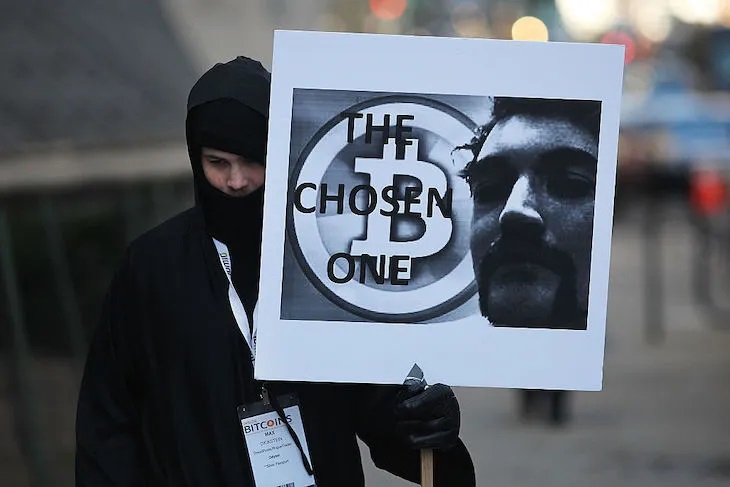President Donald Trump has pardoned Ross Ulbricht, the cybercriminal mastermind who founded Silk Road and pioneered the drug trade’s move into cyberspace. Ulbricht was serving life without parole after he was found guilty in 2015 of conspiracy to commit drug trafficking, money laundering and computer hacking. On Wednesday, after over a decade in the dungeons, Ross finally came home.
After over a decade in the dungeons, Ross has finally came home
“Free Ross” had become a rallying cry for the libertarians and cryptocurrency enthusiasts whose vote Trump had been courting. But his pardon exposes some glaring contradictions in American politics.
Ross launched the Silk Road, named after the ancient trade route linking the West to the Orient, in 2011; in doing so, he revolutionized the narcotics industry. Whereas once you needed to know the likes of Stringer Bell (Idris Elba’s ruthless consigliere in The Wire) to buy or sell illicit substances, now all you needed was an internet connection. Accessible through the anonymous Tor web browser, the Silk Road website provided a platform for drug dealers to hawk their wares through an online catalogue, like an eBay for narcos. Customer reviews guaranteed purity and quality, and the drugs arrived right on your doorstep courtesy of your local postman. The sheer volume of mail makes it impossible to screen each package with sniffer dogs and scanners.
“Ross invented something quite unique,” said Rasmus Munksgaard, an expert in online black markets at Aalborg University in Denmark. “He combined Tor, PGP encryption, and cryptocurrency to create a very unique way of dealing in illicit substances. I think what’s most surprising about this is that, for the next ten years until today, perhaps with some innovation in Russia, the basic idea that Ross worked out and that he launched is what we still have today.”
Ross ran the website as Dread Pirate Roberts, after the swashbuckling hero of The Princess Bride. But he got sloppy, once using his own email to post on a Bitcoin forum asking how to run a dark web marketplace which the police used to trace him. If his harsh sentence was meant to make an example of him, it objectively failed: the number of online shoppers on Silk Road’s successors more than doubled in the six years following Ross’s arrest, according to the Global Drug Survey.
That’s not to say policing has been totally useless. All websites must be hosted on a physical server somewhere, a weak point for law enforcement to seize control or shut them down: one such operation was discovered in the depths of a Cold War bunker in Germany built to withstand an atomic blast. When vendors or customers are compromised, activity slows down as everyone frets about security. After one of the Silk Road’s biggest ecstasy lynchpins was caught in December 2014, circulation of the drug over the dark web temporarily dropped, perhaps by as much as 11 percent. But, as always in the drugs trade, the absence of a leading figure provided an opportunity for others to capitalize.
“I don’t think there’s any realistic chance of completely shutting down these markets, but I don’t think that’s the aim of law enforcement either, despite what they write in their press releases,” Munksgaard says. “The intent of law enforcement is to introduce some degree of risk for buyers and sellers that means the prices are a little bit higher, and that might also deter at least some people from engaging in this behavior.”
So what does Ulbricht’s pardoning mean for Trump’s hard line on drugs? On the campaign trail, he floated the idea of putting dealers to death and starting a trade war with Mexico, if not actual boots on the ground to liquidate cartel capos.
“Being tough on drugs has been a policy in most US political administrations, so pardoning a man who invented a new way of dealing drugs is very much a surprise,” said Munksgaard.
Yet rather than any principled position, Trump’s pardon was more likely meant to appease the crypto-libertarians who rallied behind him. This is probably part of his wider embrace of cryptocurrency and Silicon Valley tech bros, who perhaps see him as someone under whom digital assets will flourish. Cybercrooks, too, are watching intently.

























